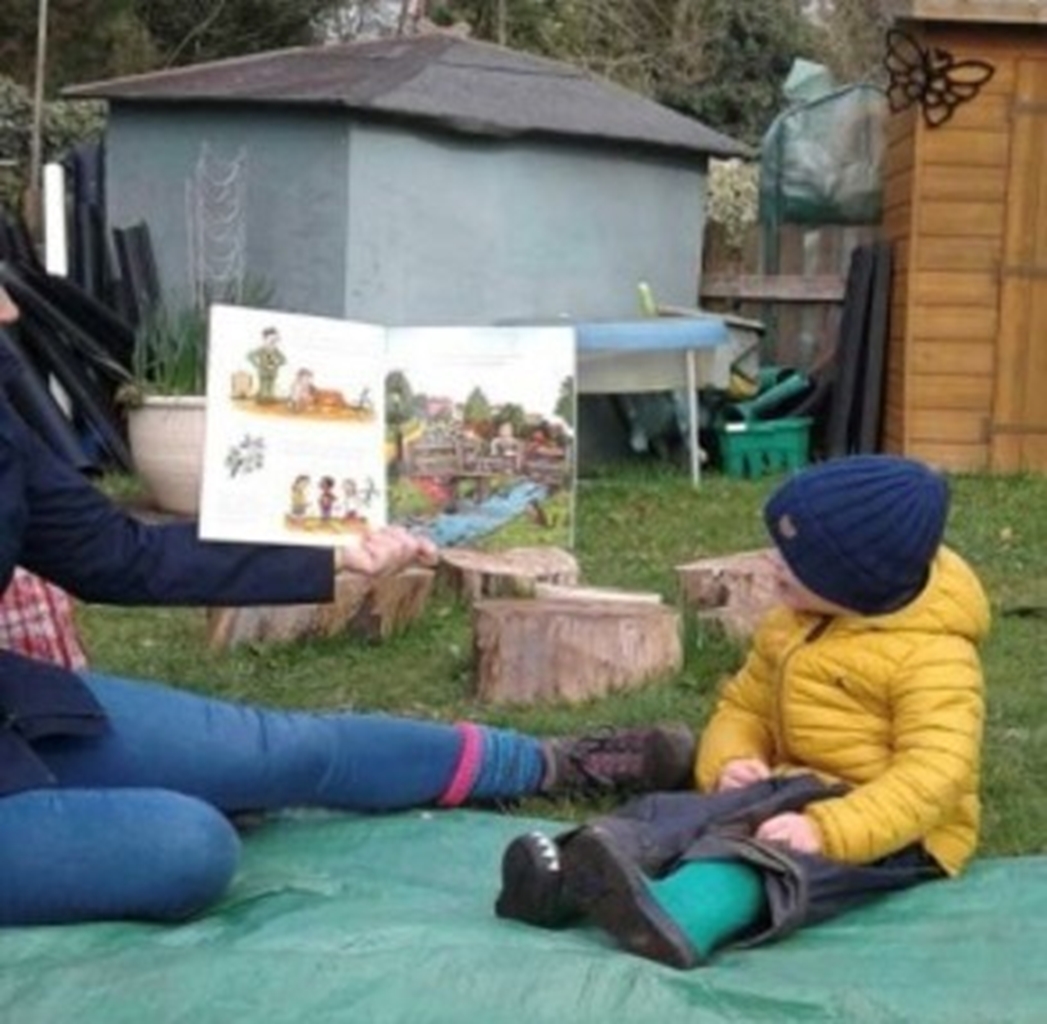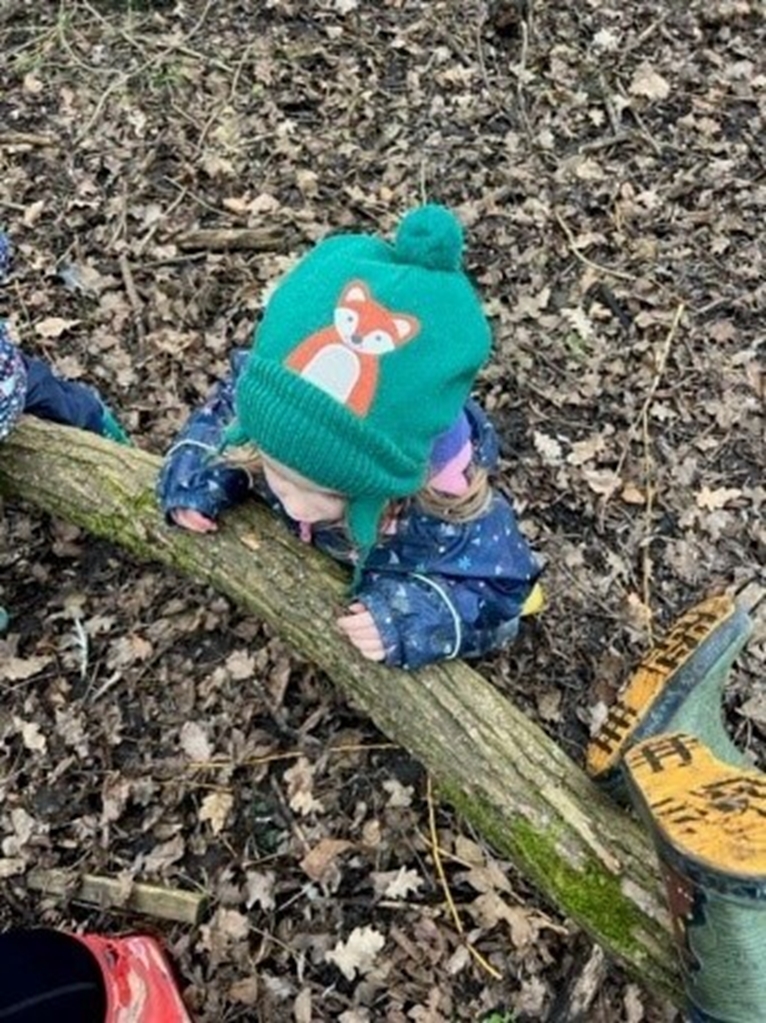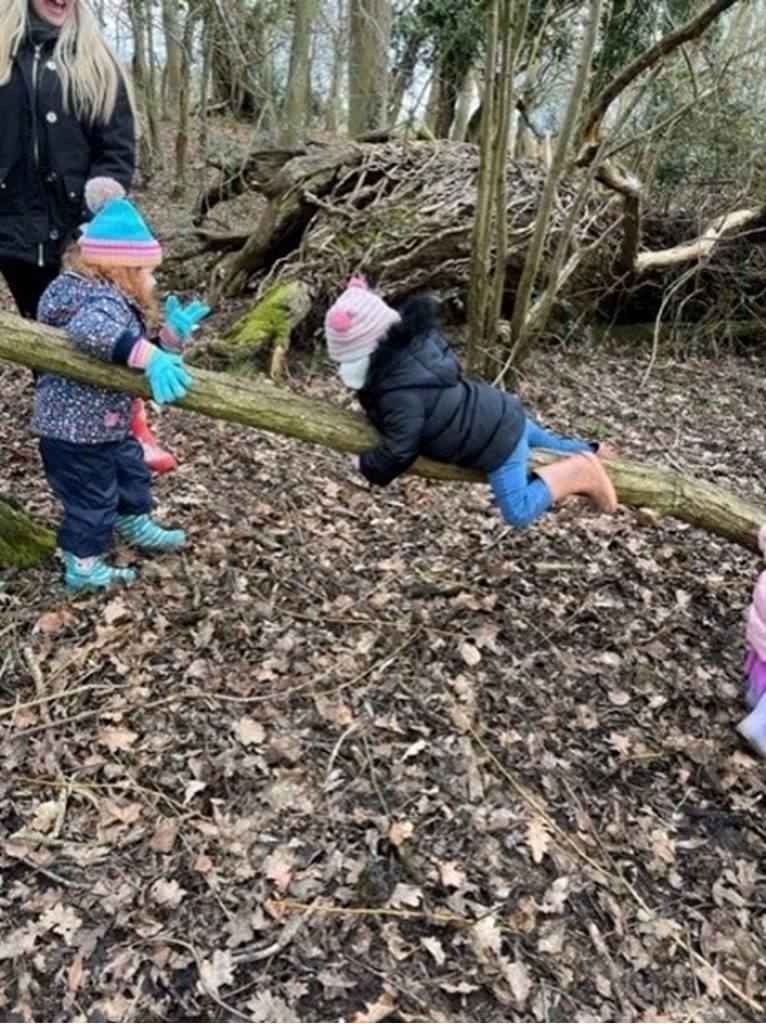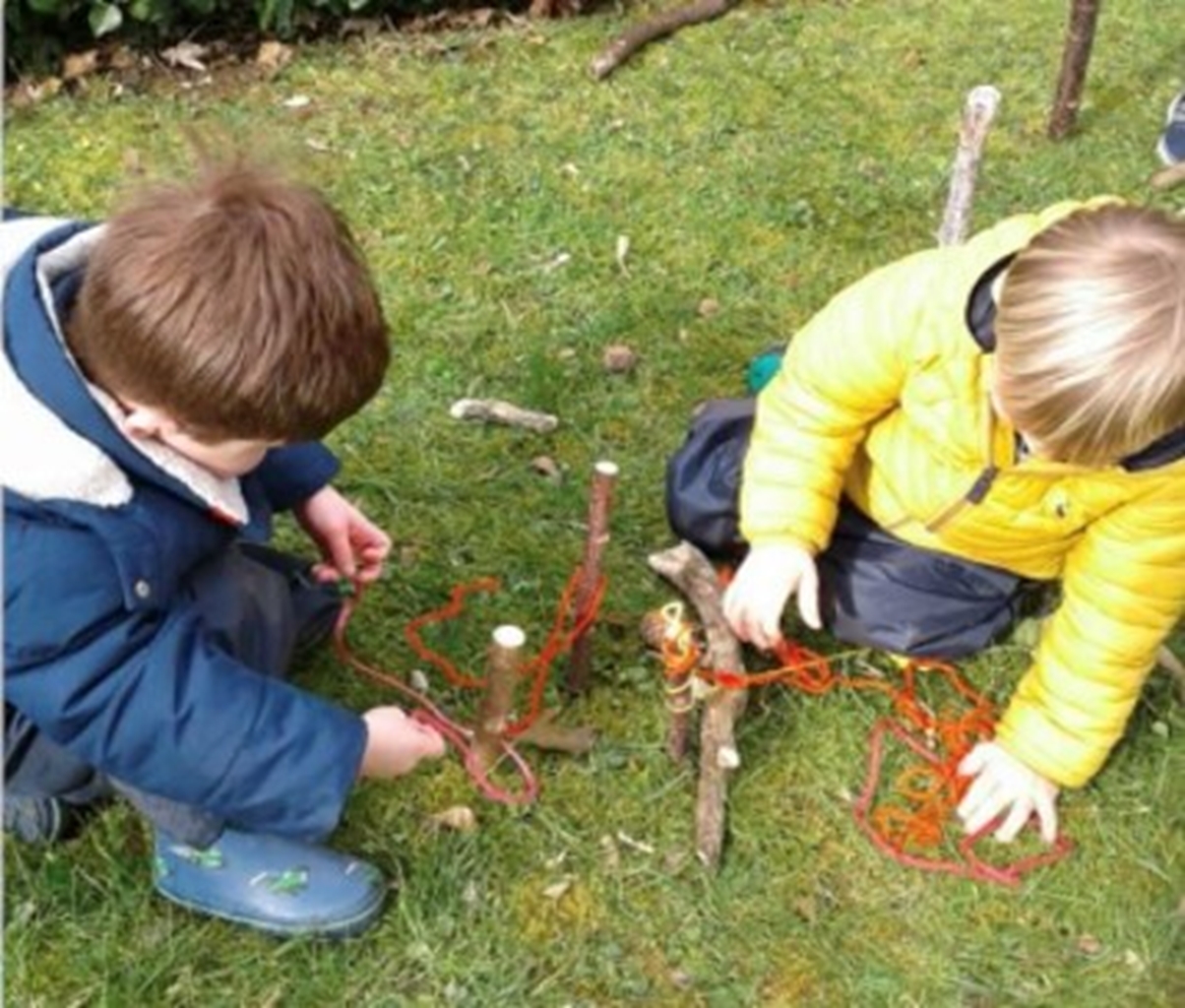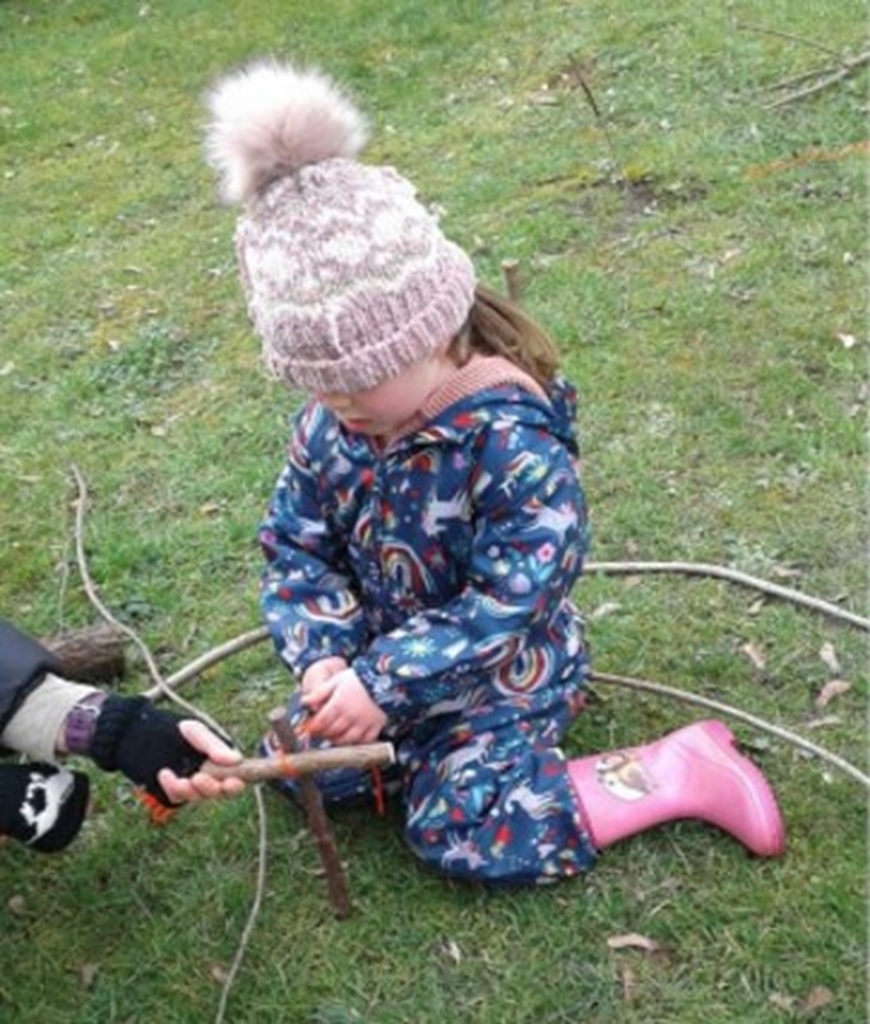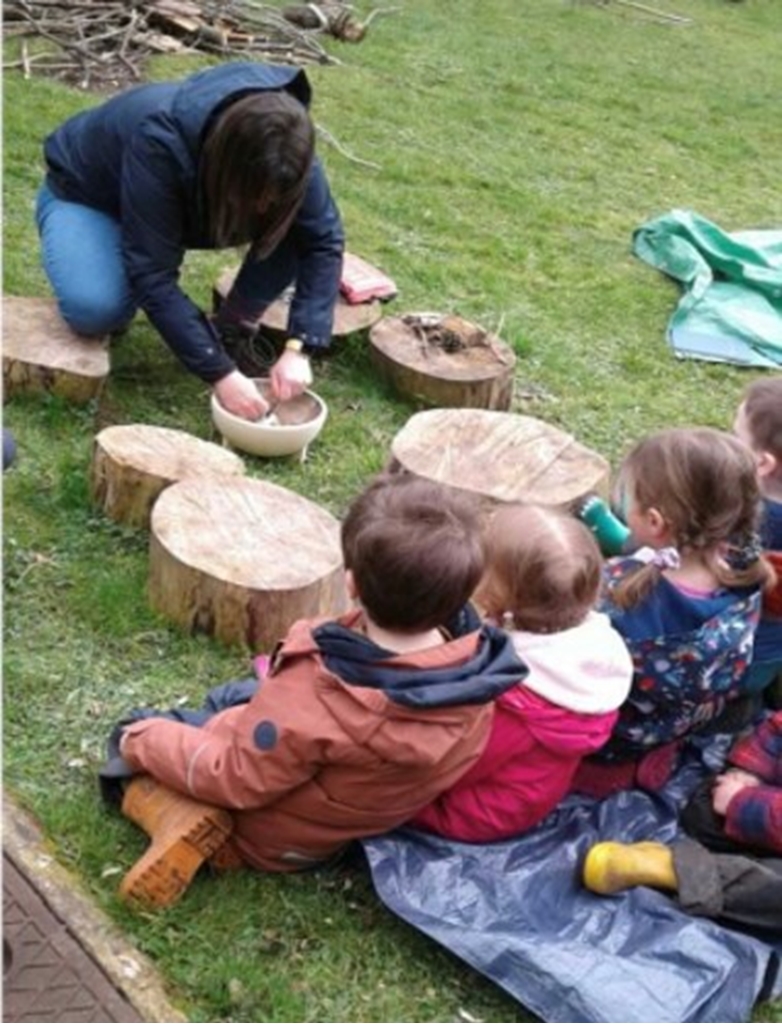EYFS Forest School project a success!
"Forest School is an inspirational process that offers ALL learners regular opportunities to achieve, develop confidence and self-esteem, through hands on learning experiences in a local woodland or natural environment with trees." (Forest School and Outdoor Learning in the Early Years, Sara Knight)
Research over recent years has shown that outdoor learning boosts confidence, social skills, communication, motivation, creativity, physical skills, knowledge and understanding in young children, as well as an increase in their self-esteem, self-confidence, ability to work cooperatively and develop a positive attitude to learning. There is no competitiveness in Forest School with each child having the opportunity to achieve their own goals; to lead their own learning through trial and error in the safe knowledge that an adult is close by to support if necessary.
We know that some children may have not had the opportunity to engage in hands on learning experiences in a woodland environment; this is particularly true for children who are vulnerable, so Emma Griffith, from Wokingham Virtual School, set out to see what impact Forest School could have.
The project
Three nursery settings were selected to take part in the Forest School Pilot, which consisted of an hour’s weekly session for 6 weeks, with the most vulnerable children being selected and tracked whilst being given the chance to challenge themselves through risk taking in a supportive environment. Led by qualified Forest School leaders, sessions were run regularly in natural spaces with the children being given the opportunity to become independent thinkers through opportunities to learn and explore the natural world.
Each setting taking part was asked to carry out case studies on the children, documenting how the children developed in their:
- Emotional Intelligence
- Wellbeing
- Challenge / Engagement
- Behaviour
The children chosen met the following criteria:
- Children who are currently in care
- Children who have previously been in care
- Children with a high vulnerability:
- Speech and language needs
- SEND needs
- Early Years Pupil Premium
Intent
The intended outcomes of the project were clearly set, and the settings were asked to track each child’s progress relating to their ability to foster resilience, build confidence, develop independence, increase creativity and willingness to take appropriate risks.
Impact
Forest School project was a great success, not only did the children progress throughout the 6 weeks but there was a noticeable change in the staff also. The engagement between the staff and children developed with staff relaxing into the sessions and letting things happen as and when the children’s needs, wants and interests developed.
Every week the children were excited to get the Forest School session started. Before we were even at the base camp site, they were getting the ground sheet out ready to sit on. This routine was set in the first week and the children were quick to tell you if I had forgotten something, like playing the “1,2,3, where are you” game!
Throughout the weeks, children were heard talking to their friends about how they needed to help each other to carry sticks because they were too long. The teamwork changed as the weeks progressed with children calling their friends to come and see what they had found or done.
In the first couple of weeks the children mainly stayed together, moving around the space as a whole group. This changed in week 3 where the children seemed to feel much more confident with their surroundings.
There was clear progress with many of the children from one setting: this might be due to the fact that the staff haven’t ever given the children the opportunity to explore outside of the nursery garden, which is primarily made of tarmac. Comments made from staff were ‘I had no idea he was so able.’ ‘He is always saying he is bored’. Staff also started to understand learning patterns especially for the two children from the Gypsy, Romany and Traveller (GRT) community.
The data
- Over the 6 weeks of Forest School 28 children out of 31 (90%) made progress in 1 or more areas of development.
- 6 out of 7 children (85%) with identified vulnerabilities made progress in 1 or more areas of development.
Self awareness - There was a 61% increase of children developing their self-awareness during the 6 weeks of Forest School. The biggest difference was in one of the settings with all but 1 child moving 1 or more points of progress. This was the setting with the youngest cohort taking part.
Self Regulation - There was a 61% increase in children developing their self-regulation during the 6 weeks of Forest School. As above the biggest difference was in the setting with the youngest cohort of children taking part.
Self Motivation - There was a 70% increase of children developing their self-motivation during the 6 weeks of Forest School. Again the youngest cohort group made the most progress across the six weeks.
Social Skills - There was a 74% increase of children developing their social skills during the 6 weeks of Forest School. As above the biggest difference the setting with the youngest cohort taking part.
Empathy - There was a 74% increase of children developing their empathy during the 6 weeks of Forest School. The youngest cohort taking part again making the most progress.
Wellbeing - There was a 68% increase of children developing their wellbeing during the 6 weeks of Forest School
Challenge/Engagement - There was a 61% increase of children developing their challenge / engagement during the 6 weeks of Forest School.
Conclusion
This 6 week project confirmed that, given the opportunities through Forest School sessions, children can refine skills such as their language and communication, problem solving and decision making – all vital skills utilised throughout life.
In light of this, perhaps we all should be thinking about how we can allow young children access to our outside areas in all weather – not just at break or lunchtime on rain free days!
Emma Griffith
